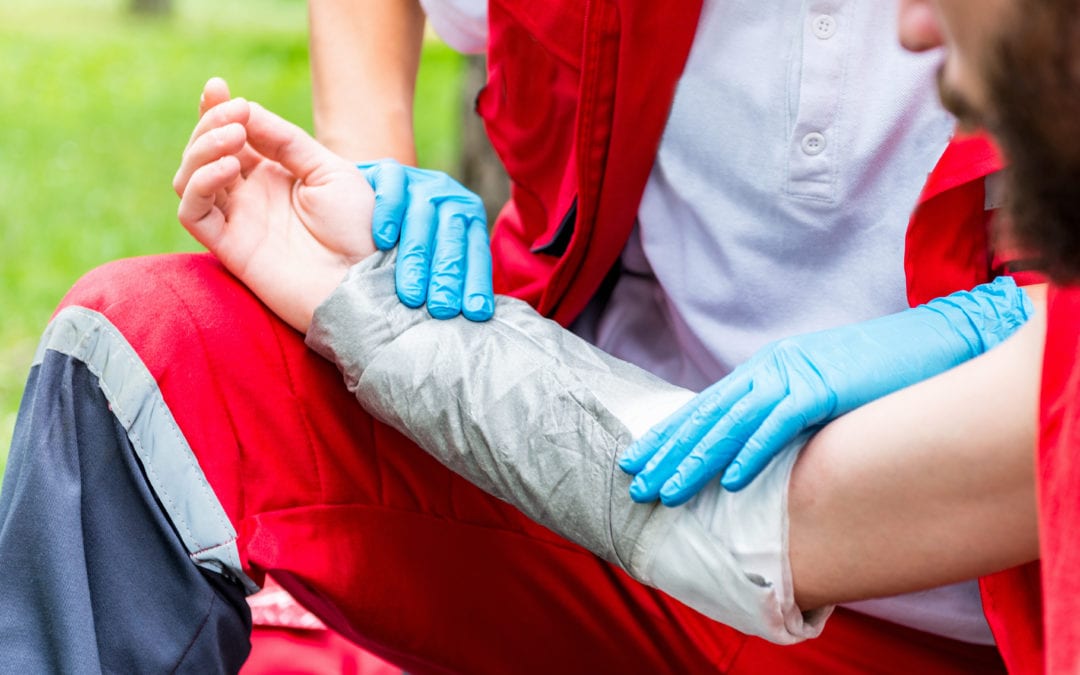Burn injuries are one of the leading causes of accidental injuries and death in the United States. In an effort to reduce these painful injuries, the American Burn Association names the first week of February Burn Awareness Week. This is a great time to increase your awareness about burns and take steps to help protect yourself and your loved ones from injury.
Burn Injuries
Burns commonly occur in the home and workplace. At home, the kitchen and bathroom are the most common places for burn accidents, such as scalding. A scald is a type of burn caused by hot liquid or steam; they are one of the most frequent types of burns. Children are more susceptible to severe burns because their skin is thinner than adults.
Kitchen Safety
The kitchen is one of the most common places for burn accidents. Help make your kitchen a safe place with the following tips:
- Don’t leave cooking unattended
- Use the back burners and keep handles turned in to prevent spills
- Grease and debris buildup can ignite, so maintain a clean oven and stove top
- Don’t leave flammable materials near the stovetop
- Don’t use aerosols near an open flame
- Avoid loose fitting clothing when cooking and roll up your sleeves
- Remove lids carefully to release steam
- Only microwave food in microwave-safe containers and stir thoroughly to distribute the heat
- Place hot foods and liquids away from the edge of counters
- Designate a kid-free area around the oven and stove
- Supervise small children in the kitchen
- Keep all hot liquids and appliance cords out of the reach of children
- Don’t hold small children while cooking at the stove or eating or drinking hot foods
- Keep small children out of the kitchen or in a high chair out of the way but within reach during hectic meal preparation
- Store all lighters and matches out of the reach of children and choose child resistant lighters
Bathroom Safety
The bathroom is also a danger zone for burns. Use these tips to make your bathroom safer:
- Set the temperature on your water heater at 120 degrees or less
- Don’t use electrical appliances near the tub or sink
- Be careful when preparing a bath for small children; start with cool water and gradually add warm to a comfortable temperature. Remember their skin is more sensitive, so have them test the water before entering the bath.
Around the Home Safety
Other areas of the house also create situations for potential burn injuries. Reduce the possibility of burns around your home with the following tips:
- Keep space heaters at least three feet from anything flammable
- Don’t leave heaters unattended
- Keep children and pets away from fireplaces and heaters
- Use a protective screen in front of the fireplace
- Store flammable materials away from the stove and fireplace
- Keep a fire extinguisher available and know how to use it
- Store all flammable liquids in their original containers
- Don’t store items near your water heater or furnace
- Clean the dryer’s lint trap after each use
- Don’t smoke in bed or near anything flammable
- Keep all appliances and cords away from water unless the manufacturer’s instructions state it was designed for use in or near water
- Unplug any appliance that smokes or smells unusual and service or replace it
- Replace cracked or frayed electrical cords
- Avoid overloading outlets or extension cords, connecting more than two cords or running cords under a rug
- Don’t use improperly sized fuses or tamper with the fuse box
- Test smoke detectors once a month and change the batteries twice a year
Outdoor Safety
Continue burn safety outside your home with the following tips:
- Store gasoline in small, approved and sealed containers outside the home and away from children
- Avoid filling gasoline motors while they are hot or in an enclosed area
- Don’t use gasoline to start or enhance a fire
- Use grills outside, away from combustibles such as buildings and vegetation
- Supervise children while the grill is hot and don’t tolerate horseplay around the grill
How to Handle Burn Injuries
Despite our best efforts, sometimes burn injuries occur. Prompt, effective treatment can help reduce the pain and prevent further injury.
- Use cool, running water to cool the burned area for 10-15 minutes; avoid using ice since it can cause frostbite on the damaged skin
- Call 911 if you notice charring or blistering of the skin
- Treat minor burns with a topical burn spray or ointment to reduce pain; only use items clearly marked for burn treatment
- Never apply oil, butter or anything greasy to a burn because they can trap heat and make the burn worse
Calling 911 for Burn Injuries
If you believe the burn accident is severe, call 911 immediately. When you call, be ready with the following information:
- Your exact location
- The name and age of the person burned along with the level of injury and any known medical history that might impact treatment
- Who you are and your relationship to the injured person
Burns are painful and can cause serious injury or even death. Taking steps to prevent them and knowing what to do if they occur is an important part of burn awareness and helps minimize the impact of burn injuries on yourself and your loved ones. Our emergency rooms handle burn injuries as well.

